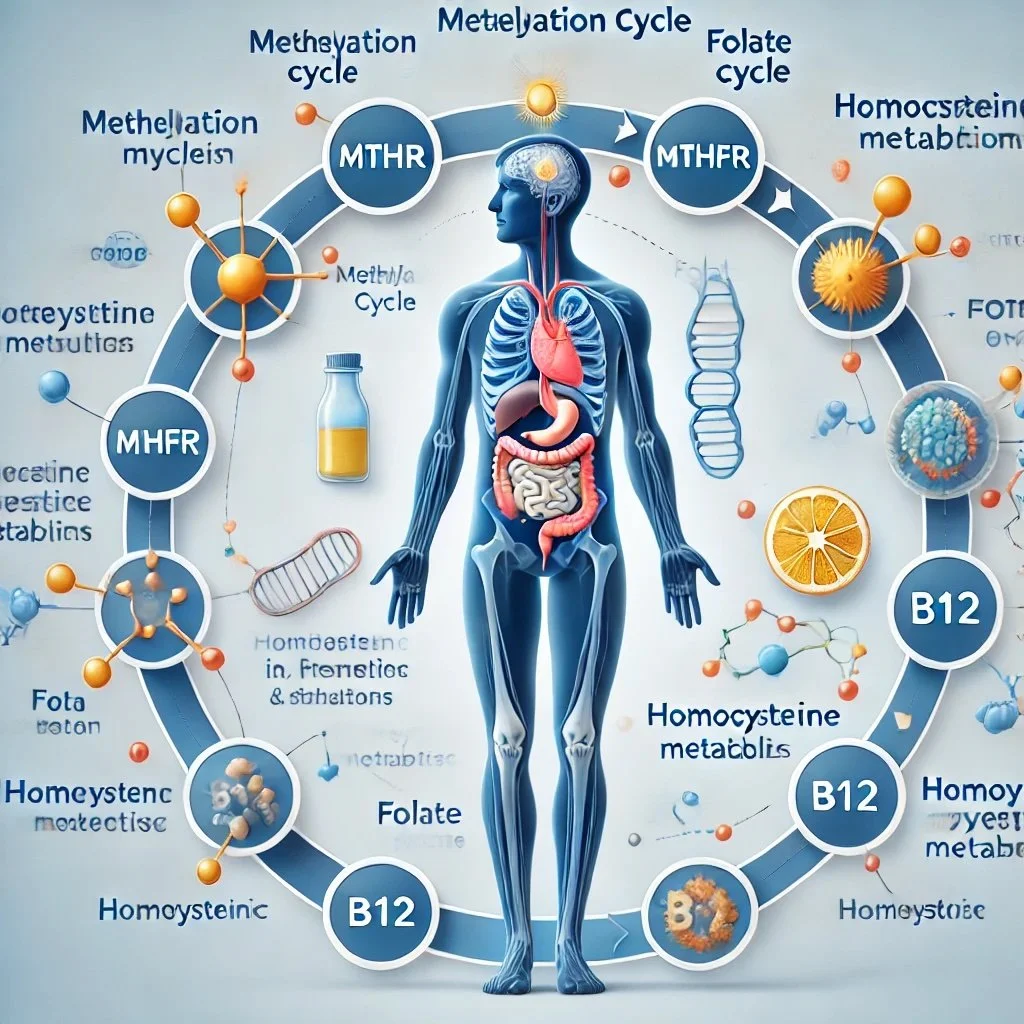Recent studies suggest that these forms of folate may play a crucial role in improving speech, reducing aggression, and optimizing cognitive development in individuals with autism.
Read MoreResearch increasingly links these foods to a variety of chronic health conditions, including metabolic disorders, obesity, gut health issues, and even cognitive and behavioral challenges. Despite their convenience, ultra-processed foods may pose long-term risks to children's well-being.
Read MoreThis article will explore the root causes behind common childhood health issues such as behavioral concerns, constipation, GERD (acid reflux), anger and aggression, anxiety, and lack of focus and attention. These root causes may include gut dysbiosis, nutritional deficiencies, underlying infections, viruses, heavy metal or environmental toxicity, and food sensitivities.
Read MoreMethylation is a crucial biochemical process that affects nearly every system in the body, influencing detoxification, neurotransmitter production, cardiovascular health, and DNA expression. For individuals with an MTHFR (methylenetetrahydrofolate reductase) mutation, optimizing methylation becomes particularly important, as genetic variants can impair the body's ability to process folate efficiently. While taking methylfolate is a great first step, additional support may be necessary to enhance overall methylation function and prevent downstream effects on health.
Read MoreOne of the most powerful ways to support your child’s brain development is through proper nutrition. The foods children eat play a crucial role in cognitive function, memory, learning, and focus.
Read MoreProper nutrition is critical for children’s growth, brain development, and overall health. A well-balanced diet provides the necessary vitamins and minerals to support strong bones, a robust immune system, and optimal cognitive function. However, many kids fall short of getting essential nutrients due to picky eating, processed food consumption, or dietary restrictions.
Read MoreIf your child struggles to gain weight or maintain a healthy growth trajectory, it can be a source of concern and frustration. Whether due to a naturally high metabolism, picky eating habits, or underlying health challenges, helping your child achieve a healthy weight requires thoughtful planning and a focus on nutrient-dense, whole foods. This blog will guide you through strategies to nourish a “skinny kid” effectively, with an emphasis on amino acids, healthy fats, caloric intake, and practical recipes.
Read MoreTwo hundred years ago, the average American consumed just ½ teaspoon of added sugar per day. Fast forward to today, and the numbers are staggering: the average adult American consumes 19 teaspoons daily, while American children are consuming a shocking 34 teaspoons of sugar every day. These figures far exceed the American Heart Association’s recommendation that children should consume no more than 6 teaspoons of added sugar daily.
Read MoreThere are many natural alternatives to treating ADHD which also improve optimal health status. Looking for specific food intolerance’s and micronutrient deficiencies is especially helpful.
Read MoreProbiotics are gaining attention for their role in improving gut health, which is intricately connected to brain function. For individuals with autism, addressing gut-brain axis imbalances through probiotic supplementation can be a valuable approach.
Read MoreOutdoor play and physical activity are universally important for children, but they hold particular value for children with Autism Spectrum Disorder (ASD) and Attention Deficit Hyperactivity Disorder (ADHD). The natural environment and movement-based activities provide a multitude of benefits ranging from enhanced physical health to improved emotional regulation and cognitive functioning. This blog explores the scientific underpinnings of these benefits, providing insights into how outdoor play can support the unique needs of children with ASD and ADHD.
Read MoreThis Thanksgiving meal guide is designed with children with autism in mind, ensuring the dishes are gluten-free, casein-free (dairy-free), and soy-free. These recipes focus on whole foods to support gut health and optimize nutrition for children and families alike.
Read MoreOne crucial yet often overlooked component of overall health in autism is the vagus nerve—a key player in the gut-brain connection, emotional regulation, and digestion. Let’s explore the role of the vagus nerve in autism and five effective ways to stimulate it for improved digestion, calming, and enhanced well-being.
Read MoreAs parents and caregivers, it can be alarming to discover the hidden dangers in common foods marketed toward children. Often brightly packaged and cleverly advertised, these foods seem fun and enticing for young consumers but contain questionable additives, hidden heavy metals, and chemicals with potential links to serious health issues like cancer, ADHD, autism, and kidney problems. Even more concerning, many of these ingredients are banned in other countries due to health risks, yet they continue to be widely used in the United States.
Read MoreImpulsive behavior is a common challenge in children with Autism Spectrum Disorder (ASD) and Attention-Deficit/Hyperactivity Disorder (ADHD). These behaviors can manifest as difficulty waiting for turns, interrupting conversations, acting without thinking, or struggling to control emotional reactions. While impulsivity is often seen as a symptom, understanding its root causes can provide critical insight into effective interventions and support for these children. In this blog, we will explore the underlying factors contributing to impulsive behaviors in children with autism and ADHD, and provide practical strategies for addressing these behaviors holistically.
Read MoreWhile camel milk may sound unconventional to some, scientific studies and anecdotal evidence suggest it has potential benefits for children with autism. In this blog, we'll explore how camel milk can play a role in an autism diet, discuss its benefits, and guide you on how to find reputable sources for this unique and nutritious beverage.
Read MoreMany children with autism benefit from following gluten-free and dairy-free diets, which can support better digestion, reduce inflammation, and improve behavior and communication. With so many packaged food products available, it's important to identify the healthiest options to fit your child’s needs without sacrificing flavor or convenience.
Read MoreDetoxification plays a critical role in maintaining health, and this is especially true for children with autism, who often have impaired detoxification pathways. These impairments may contribute to a wide range of symptoms, including speech and communication challenges.
Read MoreNutrient deficiencies are common in children with autism, with significant implications for brain function, behavior, and overall health. Identifying and addressing these deficiencies can be a game-changer for many families, offering a holistic approach to managing autism symptoms.
Read MoreFeeding a child with autism can present unique challenges, especially when they have food aversions, sensory sensitivities, or a limited diet. Ensuring they get the nutrients they need is crucial for their overall well-being and cognitive development. Picky eating in children with autism can often result in nutrient deficiencies, leading to a range of issues such as low energy, poor concentration, or even gastrointestinal problems. However, with the right approach, you can gradually encourage your child to explore new foods and increase their nutrient intake. Here are five actionable steps to take today to help your picky eater with autism add more nutrients to their diet, plus a delicious recipe to get started.
Read More



















